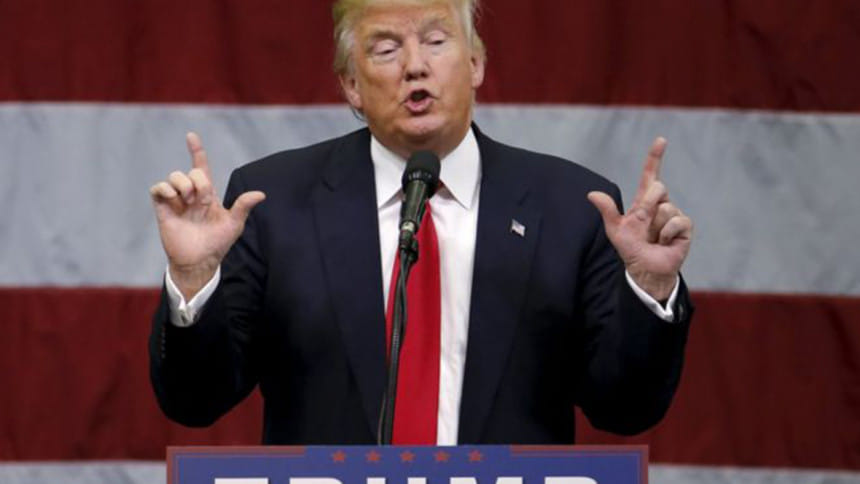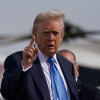Trump accuses China of trade ‘rape’

Republican presidential front-runner Donald Trump has accused China of "raping" the US, in renewed criticism of China's trade policy.
He told a rally in Indiana that China was responsible for "the greatest theft in the history of the world".
Trump, a billionaire businessman, has long accused China of manipulating its currency to make its exports more competitive globally.
This, he says, has badly damaged US businesses and workers.
"We can't continue to allow China to rape our country, and that's what we're doing," he told the campaign rally on Sunday.
"We're going to turn it around, and we have the cards, don't forget it," he added. "We have a lot of power with China."
Trump, in his campaign manifesto, pledges to "cut a better deal with China that helps American businesses and workers compete".
He sets out four goals that include immediately declaring China "a currency manipulator" and putting "an end to China's illegal export subsidies and lax labour and environmental standards".
Figures from the US government show the annual trade deficit with China was at an all-time high of $365.7bn (£250.1bn) last year.
There was no immediate response from Beijing to Trump's comments, but he is seen by many in China as an inspiration rather than an antagonist, says the BBC's Vincent Ni.
PROTESTORS
This is the first time Trump has used the word "rape" in the context of China and trade, but his campaign for the Republican Party's presidential nomination has been punctuated by inflammatory comments.
He was confronted by hundreds of protesters in California on Friday before giving a speech to the state's Republican convention. Trump was forced to enter the building by the back entrance.
Protesters were angry at his views on immigration: he has advocated building a border wall with Mexico, and has also referred to Mexicans as "rapists" and criminals responsible for bringing illegal drugs into the US.
Anti-Trump protesters were also out in force during the annual May Day rallies in California.
The Trump campaign had to cancel several rallies in March after hundreds of protesters threatened to disrupt events in Chicago and St Louis.
Trump has called himself the Republican "presumptive nominee" after a string of primary wins.
In terms of delegate support, the property tycoon is far ahead of his nearest rivals, Texas Senator Ted Cruz and John Kasich, the governor of Ohio.
On the other side of the race, Hillary Clinton is expected to beat Bernie Sanders to the Democratic nomination and fight for the presidency in November's general election.

 For all latest news, follow The Daily Star's Google News channel.
For all latest news, follow The Daily Star's Google News channel. 








Comments